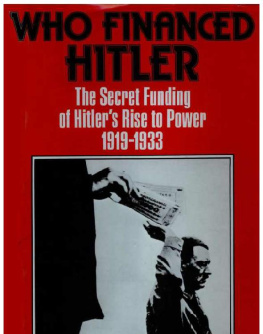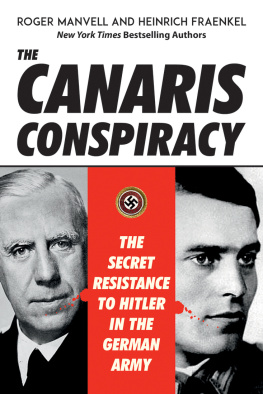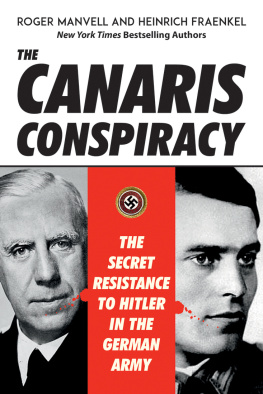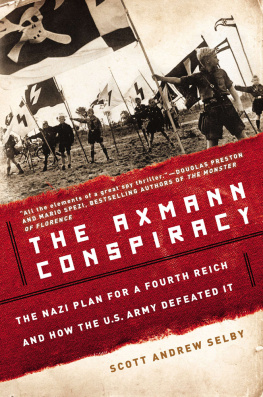THE S ENTINELS
FORTUNES OF WAR
GORDON ZUCKERMAN
THE S ENTINELS
FORTUNES OF WAR


NOTICE : This book is a work of fiction. Names, characters, businesses, organizations, places, events, and incidents are either a product of the authors imagination or are used fictitiously. Any resemblance to actual persons, living or dead, events, or locales is entirely coincidental.
Published by Greenleaf Book Group
Austin, TX
www.greenleafbookgroup.com
Copyright 2009 Gordon Zuckerman
All rights reserved under all copyright conventions.
No part of this book may be reproduced, stored in a retrieval system, or transmitted by any means, electronic, mechanical, photocopying, recording, or otherwise, without written permission from the publisher.
Distributed by Greenleaf Book Group
For ordering information or special discounts for bulk purchases, please contact Greenleaf Book Group at PO Box 91869, Austin, TX 78709, (512) 891-6100.
Design and composition by Greenleaf Book Group LLC
Cover design by Greenleaf Book Group LLC
Publishers Cataloging-In-Publication Data
(Prepared by The Donohue Group, Inc.)
Zuckerman, Gordon.
The Sentinels : fortunes of war / Gordon Zuckerman.
p. ; cm.
ISBN: 978-1-60832-016-5
1. Industrialists--Germany--Fiction. 2. Conspiracy--Germany--Fiction. 3. Germany--Politics and government--1933-1945--Fiction. 4. Germany--Economic conditions--1918-1945--Fiction. 5. Transnational crime--Fiction. I. Title.
PS3626.U25 S46 2009
813/.6 | 2009920764 |

| Part of the Tree Neutral program, which offsets the number
of trees consumed in the production and printing of this book
by taking proactive steps, such as planting trees in direct
proportion to the number of trees used: www.treeneutral.com |
Printed in the United States of America on acid-free paper
09 10 11 12 13 14 10 9 8 7 6 5 4 3 2 1
First Edition
PROLOGUE
BERLIN, 1932
Karl von Schagel paced the drawing room. In the last five minutes, he had probably consulted his pocket watch a dozen times. He walked over to the sliding doors that opened onto the dining room, with its long, mahogany table polished to such a finish that a woman could probably use it to reapply her lipstick. Usually the table glistened all down its length with crystal, silver, fine bone china, and linens folded into place as crisply as a starched dress shirt. Tonight the table glistened, all rightbut only for about a third of its length. This evenings dinner party guest list was limited. Von Schagel gave the dining room a final, critical glance and turned away from the door, tugging his watch from his vest pocket.
Like his father and his fathers father, Karl von Schagel was a trusted financial adviser to Germanys wealthiest and most influential families. Karl had lost count of how many elegant dinner parties he and his wife had hosted here, parties that had been attended by the cream of German society. But tonight there were only seven guests, the seven most powerful men in Germany.
Erhart Schmidt was first to arrive, as usual. For well over a century, the Schmidt family name had practically been synonymous with steel in Europe. Schmidt steel had been forged into long-range, precise artillery weapons since the time of the Napoleonic Wars. Guns made from Schmidt steel had been used in China, in Americas revolutionary and civil wars, by the Spanish, French, and Dutch armadas, during the Boer Wars in Africa, and by both sides during the Great War. Much of the rail and rolling stock that transported the fruits of the Industrial Age in Europe, Asia, and America was produced from Schmidt smelters.
Erhart, the current head of this powerful, proud, and arrogant family, was well over six feet tall; he was also heavily muscled and weighed more than 250 pounds. Like the big guns he produced, he commanded respect. He expected his word to be the last in any discussion, and his powerful presence alone was often enough to intimidate the worthiest adversaries. Tonight, he was the unquestioned leader among the illustrious group of men who would be seated around the von Schagel dining table.
A servant politely took Herr Schmidts heavy woolen overcoat, hat, and gloves, and another, appearing from nowhere, caused a tumbler of single-malt Scotch to materialize in the steel moguls hand. Karl and Schmidt spoke meaningless pleasantries for a few moments, until the other guests began to arrive.
Heinrich Bimmler, head of Germanys dominant automobile manufacturer, came in next, followed in a minute or two by Wilhelm Schenk, the chairmansome, out of his hearing, preferred the term tyrantof Reichsbank, the nations largest financial institution. Boritz, the railroad magnate; Klein, the shipbuilder; Fleischer, holder of the nations most extensive mining interests; and von Steuben, who had grown rich by supplying the electrical infrastructure demanded by Germanys burgeoning industrial buildup, completed the party. Karl bowed his guests into the dining room and more servants appeared, bringing in steaming trays that drifted mouthwatering aromas in their wake.
When the last course had been served, the men retired to the privacy of Karls library for the customary cigars and vintage Napoleon cognac. The congeniality from dinner carried over until the last Cuban had been lit and the last snifter served. Only then did the atmosphere turn serious.
Schmidt initiated the conversation. Karl, we want you to listen carefully to what we have to say. Each of us has had the opportunity to discuss privately what we now want to discuss with you as a group. And we are all in agreement that your familys years of loyal service to each of our families uniquely qualify you for the sensitive assignment that we are hoping you will accept. Schmidt held Karls eyes for a moment, then glanced at Bimmler and nodded.
The tall, thin, carefully dressed auto manufacturer, coal-black hair combed straight back, adjusted his glasses and began to speak in his quiet voice. Karl, you probably understand better than most of us that any hope of reversing the failing prosperity of Germany will require some drastic changes. Following the war, the inflow of international financing and the corresponding improvement in our economy were, for a time, creating real hope. But now that the depression in America has spread to the rest of the world and the financing that we so desperately need is drying up, new solutions are becoming necessary. Many of our factories lie idle, unemployment is rampant, and public disillusionment is approaching historic highs. The Weimar Republic is unstable and the Social Democratic Party is losing its appeal. At the same time, membership in many reform political parties is fragmented but rising. In short, we think these circumstances indicate that time has come for us to start making some discreet adjustments in the German government.
As Bimmler spoke, Karl felt the others watching him. He focused on Bimmlers words and maintained eye contact with him, however, and nodded at the expected moments.
We have been following the progress of some of the most active new political parties and there is one that seems to be gathering more public support than the others. He paused to pull a piece of paper from his pocket, but Karl noticed that Bimmler never looked at it as he continued speaking. According to my figures, Adolf Hitler and his National Socialist German Workers Party had an enrollment of 108,000 in 1928. In the recent elections, just four years later, they received 810,000 votes, an increase of almost 800 percent, and they now control twelve seats in the Reichstag. Experts agree that current economic difficulties will generate even greater public support for Hitler, whose fresh rhetoric and promise of change are having a mesmerizing effect on our discontented public. Disregarding the fact that many of his viewpoints may conflict with ours, the reality of the situation is that increasing numbers of our countrymen are convinced Hitler has some new answers to some old problems plaguing this country.
Next page









